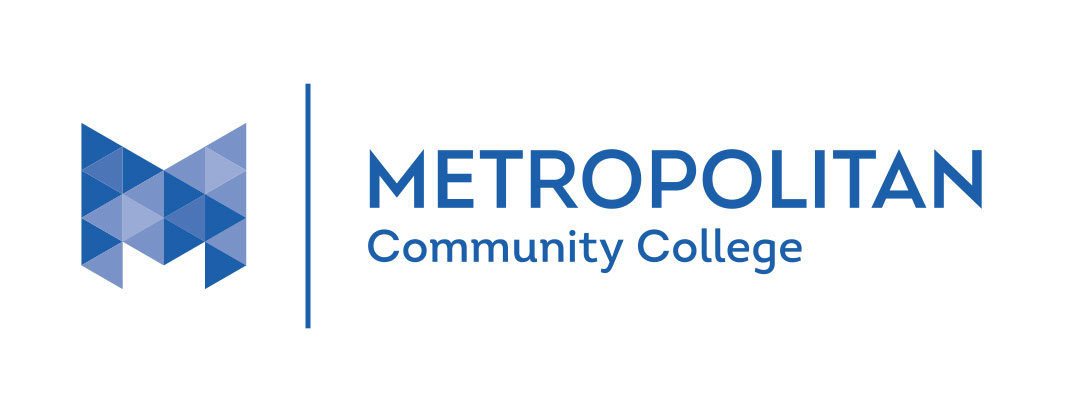To maintain eligibility for Federal Student Aid (FSA) programs, students must meet Satisfactory Academic Progress (SAP) standards for grade point average, pace, and timeframe to degree. It is a student’s responsibility to become familiar with their college’s SAP Policy if they wish to receive Federal Student Aid (FSA). Failure to meet SAP places a student’s financial aid in jeopardy. The Financial Aid SAP policy also applies to students using the Nebraska Waiver of Tuition Program (NE R.S.S. 80-411).
Explore Programs
Appeal Procedures
Students placed in denied status have the right to appeal. All appeals are reviewed by the Satisfactory Progress Committee. When reviewing appeals, the committee looks for mitigating circumstances (unusual or extraordinary circumstances beyond the student's control that the student could not have planned for). SAP appeals are reviewed quarterly according to the published deadlines.
How to Submit an Appeal
To submit an appeal, follow these steps:
- The Financial Aid Satisfactory Progress Appeal Form is an electronic form available to student through their Financial Aid Self Service. In Self Service, the student should review their Satisfactory Academic Progress by clicking on the SAP status banner. From there, the SAP appeal form is available by clicking on the SAP Appeal Form link under “Helpful Links.” Student appeals are available for all students requesting Federal Financial Aid and applicable Nebraska State Tuition Waiver eligible students. If you are requesting Federal Aid, you must have a FAFSA on file.
- While completing the electronic Appeal Form, you will be asked to respond to three questions:
- Explain the circumstances contributing to your inability to maintain Financial Aid Satisfactory Progress.
- Explain how you have addressed any circumstances.
- Confirm your program of study and how many hours to completion.
- Submit any supporting documentation to aid in the review of the appeal
Review of Appeals
The Financial Aid Satisfactory Progress Committee reviews appeals. Students are notified of the committee's decision by their MCC student email account and in Financial Aid Self Service. When an appeal is approved, aid is reinstated for the quarter the student requested the appeal. If the student does not attend during the reinstatement quarter, the reinstatement will apply to next quarter of enrollment. When appeals are denied or students decide not to appeal, students are responsible for payment of all educational charges on their MCC Account until they appeal or successfully return to good standing.
Audit Courses
College Level Examination Program (CLEP)
Development Courses
Dual Enrollment Courses
English-As-A-Second-Language (ESL) Courses
Financial Aid Satisfactory Progress Statuses
Statuses are determined for all students at the end of each quarter of enrollment.
- Good Standing (GS) - Good standing status is given to students who meet all three Satisfactory Progress standards.
- Warning (WRN) - Students who do not meet SAP standards after their first quarter are placed warning and may still receive financial aid in the subsequent term. Their status may change back to good standing if they progress in SAP or move to denied if they continue to fail SAP standards.
- Denied (DEN) - Students who do not meet SAP at the end of a warning quarter, or those who are over the maximum timeframe are moved to denied status. Federal Student Aid (FSA) programs are denied. However, students are afforded the opportunity to appeal the denial.
- Monitoring/Probation (MON) - Students with an approved appeal are placed on monitoring/probation status for the subsequent quarter. Students on probation must meet the requirements for continued financial aid eligibility; complete all attempted credits, achieve a minimum quarterly GPA of 2.0 or higher, and attempt no more than 150 percent of the credits required for their program of study. While on probation, students must follow the academic program approved in their appeal and cannot change their program of study until regaining good standing.
- Extended Monitoring (MNX) - Students may remain in extended monitoring until they regain good standing.
- Max Time Approved (MAX) - Students with an approved max timeframe appeal are eligible for aid for the subsequent quarter. While on max time approved status, students must follow their academic program.
- Max Time Extended (MXE) - Students may remain in extended max timeframe monitoring until they complete their program so long as they continue to meet the terms of their approved appeal.
Overaward Policy
An overaward occurs when a student’s financial aid package exceeds their demonstrated need or overall cost of attendance (COA). If, at any point during the award period, a student receives additional Estimated Financial Aid (EFA) that was not considered when calculating their eligibility for Campus-Based aid, and this combined EFA exceeds the student’s need, the amount exceeding the student’s need will be considered an overaward.
Direct Loan Overawards:
- Pre-Disbursement Overawards: If it is discovered that a student’s account will be overawarded before the Direct Loan funds are disbursed, we will take corrective actions, including:
- Cancelling or reducing the loan amount.
- Reducing or cancelling other institutional aid, if applicable.
In overaward situations, Pell Grant funds will not be used to cover a loan.
- Post-Disbursement Overawards: If the overaward occurs after the loan has been disbursed, there is no immediate need to address the overaward with Direct Loan funds. However, we may adjust or reduce future loan payments to prevent additional overawards.
Campus-Based Overaward Threshold: Campus-Based aid does not need to be reduced if the overaward does not exceed $300. This threshold applies only if the overaward occurs after Campus-Based aid has been packaged and the institution was unaware that the student would receive additional funds.
Iraq and Afghanistan Service Grant Overawards: An Iraq and Afghanistan Service Grant awarded to an ineligible student is considered an overaward. Additionally, if the grant is based on a Pell Grant but the student’s enrollment status is different than what was assumed, this will also result in an overaward.
If the Iraq and Afghanistan Service Grant alone exceeds the student’s COA, it will be considered an overaward. All overawards must be corrected.
Communication: Students are notified of any changes made to their awards, and an email notification is sent to the student's MCC email account. This ensures timely communication of any adjustments.
Return of Title IV Funds: In cases where the overaward involves Title IV funds (such as Pell Grants, Direct Loans, or FSEOG), ensure compliance with Return of Title IV Funds (R2T4) regulations.
If the overaward results in the student being ineligible for some or all of the awarded funds, those funds must be returned to the Department of Education. If a loan or Pell Grant needs to be reduced or cancelled due to an overaward, follow the appropriate procedures for returning funds or adjusting disbursements. The timing and method of returning these funds should align with R2T4 guidelines. If the overaward is detected after funds have been disbursed, adjustments to future disbursements may be necessary. Ensure that any changes to future aid payments are clearly communicated to the student.
Professional Judgment
The Higher Education Act (HEA) Section 479A establishes authority for the financial aid administrator to exercise professional judgement discretion to make adjustments on a case-by-case basis in a number of areas when an applicant, parent, or spouse has special or unusual circumstances.
Repeated Courses Policy
Students using federal financial aid to pay for courses may not use financial aid funds to repeat a course in which they earned a C or better. A repeated course is only financial aid eligible under the following circumstances:
- The student has not yet received a grade of R, P, D, or better in the class; or
- It is the first time the student has repeated the class after receiving a grade of R, P, D, or better
Note: Financial aid will pay for a course twice for R, P, D, or F grades. Additional attempts will not be covered by financial aid.
Satisfactory Academic Progress (SAP)
Standard 1: Cumulative Grade Point Average (GPA)
To receive or continue to receive financial aid, students must maintain a minimum cumulative GPA. The cumulative GPA requirement differs based on the number of credit hours attempted.
| Associate Degree Program | Certificate of Achievement or Career Certificate Program | |||
| Credit hours attempted | Minimum GPA required | Credit hours attempted | Minimum GPA required | |
| 0 - 29.5 | 1.5 | 0 - any | 2.0 | |
| 30 - 79.5 | 1.75 | |||
| 80+ | 2.0 | |||
Standard 2: Completion Ratio (completed/attempted hours = 67%)
The percentage of attempted credit hours completed is measured by dividing the cumulative number of completed credits by the cumulative number of attempted credits. The minimum requirement is 67 percent. For financial aid purposes, a course is considered complete if a grade of A, B, C, D, P, or R is earned. Grades of F, W, and I are considered unsuccessful grades and reduce the completion rate.
Standard 3: Maximum Credit Limit
The maximum time frame for the completion of a degree or certificate is limited by federal regulations to 150 percent of the published number of credit hours required to complete the degree or certificate. This includes transfer credits and all attempted credit hours, including completed credits, audits, incompletes, withdrawals, CLEP, and repeated or failed classes. Students must be able to complete their program with the maximum credit limit. Once it becomes mathematically impossible to complete within the maximum credit limit students are placed into denied (DEN) status.
Transfer Courses
Verification
FAFSA verification is a process where the US Department of Education verifies the accuracy of information reported on the FAFSA, and if selected, you will need to submit documentation like tax transcripts to the financial aid office.
Why Verification?
- The U.S. Department of Education requires schools to verify the accuracy of the information reported on the FAFSA to ensure eligibility for federal student aid.
- Some FAFSA applications are selected for verification due to inconsistencies in the information provided, while others are chosen randomly.
- Verification is a requirement for students who are eligible for subsidized Title IV aid
- Withdrawing From Classes (R2T4 Policy)
Withdrawing From Classes (R2T4 Policy)
Federal Student Aid Recalculation (R2T4) Policy
Students may withdraw from one or all classes through any of the following methods:
- Through Student Self Service
- By calling the MCC Contact Center at 531-MCC-2400
- By meeting with an Academic Advisor
Read more about the details regarding the Calculation of Title IV Funds.

